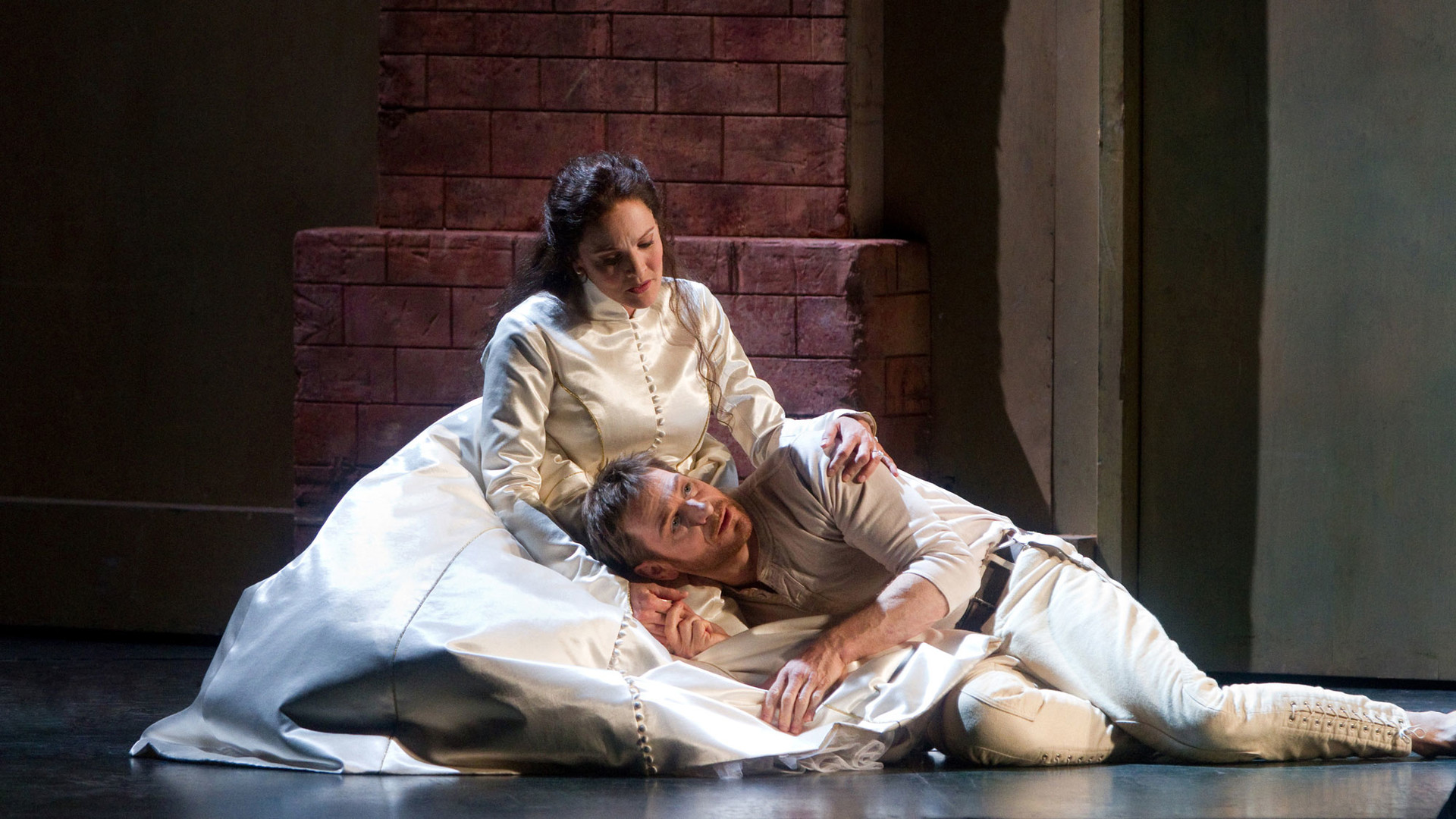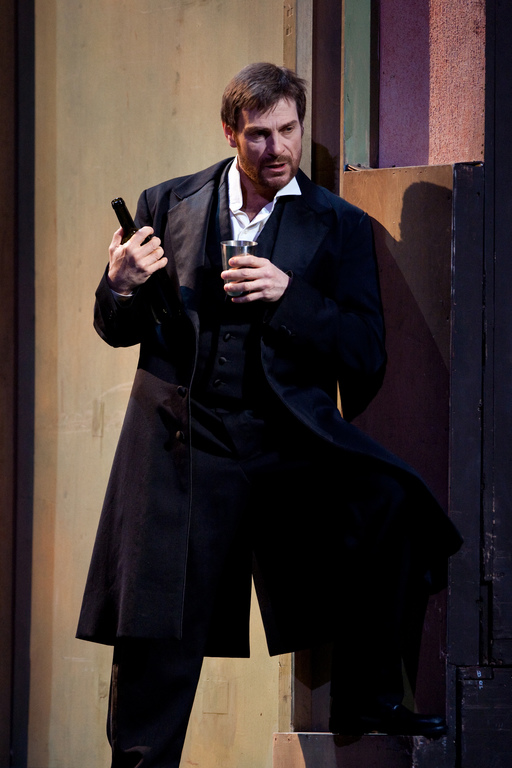ACT I
Elsinore Castle, Denmark. Two months after the death of King Hamlet, fanfares announce the marriage of his brother and successor Claudius to the widowed queen, Gertrude. Hamlet, Prince of Denmark and son of the former king, remains apart from the celebration. He is consumed by remorse and self-doubt and vehemently disapproves of his mother’s new marriage so soon after his father’s death. His thoughts are interrupted by the arrival of Ophélie, the daughter of the Lord Chamberlain, Polonius. She is in love with Hamlet and upset by rumors that he intends to leave the court. He assures her that he still loves her (Duet: “Doute de la lumière”). Laërte, Ophélie’s brother, arrives. He is being sent on a mission to Norway and entrusts his sister to Hamlet’s care. The prince refuses to join the others for the wedding banquet. His friend Horatio appears to tell Hamlet that his father’s ghost has been seen.
At night, alone on the ramparts of the castle, Hamlet meets the ghost. He tells his son that he was poisoned by Claudius and demands vengeance for his murder. Hamlet swears to obey.
ACT II
Ophélie is distressed by Hamlet’s indifference (“Sa main depuis hier”). She would like to leave the court, but Gertrude thinks she can help cure the prince’s melancholy. Claudius, who also has noticed Hamlet’s disturbing behavior, arrives. Gertrude wonders if her son suspects the real cause of the former king’s death but Claudius assures her that he is merely losing his mind. The prince enters, rebuffs Claudius for addressing him as his son, and announces that he has arranged for a play to be performed that evening. When the players arrive Hamlet instructs them to perform “The Murder of Gonzago.” He hopes that the story of a murder by poisoning will prompt a confession from the king and queen. In order not to arouse suspicion, he plays the fool and invites the actors to drink (“Ô vin, dissipe la tristesse”).
The court assembles to watch the play. It has the desired effect: Claudius erupts in anger as the murderer of the story gains the crown. Hamlet hides his true feelings by feigning madness, snatching the crown from the king’s head, to the horror of everyone present.
ACT III
Hamlet reflects on life and death: he could have killed the king but did not (“Être ou ne pas être”). He hides as the king enters. Claudius is racked with remorse and calls on his dead brother to intercede for him with God (“Je t’implore, ô mon frère”). Polonius appears, calming the king, and the two leave. Hamlet is shocked to discover that Polonius was an accomplice in the murder. When Ophélie enters with Gertrude, he roughly rejects the girl’s advances and urges her to enter a convent, declaring that he no longer loves her and will not marry her. Gertrude wonders what really prompted Hamlet’s change of heart. Ophélie leaves in tears, and Hamlet confronts his mother with her crime. She begs for mercy (Duet: “Pardonne, hélas! ta voix m’accable”). At that moment the ghost reappears and reminds Hamlet that it is not up to him to judge his mother. Gertrude, who cannot see the apparition, believes that her fears Hamlet has gone mad are confirmed.
ACT IV
Ophélie has lost her senses. She imagines herself to be married to Hamlet and recalls the tale of a water nymph who lures away wandering men (“Pâle et blonde dort sous l’eau profonde”). She kills herself.
ACT V
In a cemetery, two gravediggers discuss the inevitably of death. Hamlet arrives. Unaware of Ophélie’s death, he reproaches himself for the way he treated her and the madness his behavior has provoked (“Comme une pâle fleur”). Laërte appears, demanding vengeance, and the two men are about to duel when the funeral cortège with Ophélie’s body approaches. Hamlet, distraught to discover she is dead, kneels by her bier. He then rushes at Claudius with his sword and kills him, before being stabbed by Laertes.







